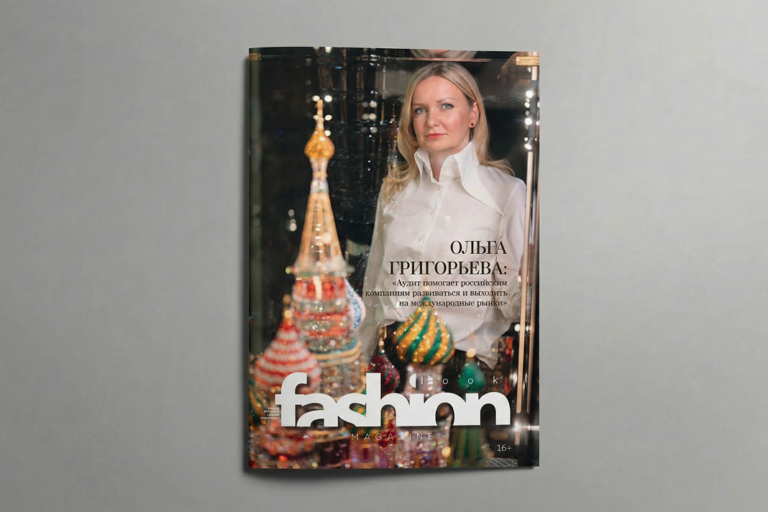The key changes include the following:
1. The list of related persons has been expanded
Now, related persons will also encompass:
- A controlling person (a Russian individual or legal entity) and its controlled foreign company (CFC).
Thus, the interest for recognizing persons as related for the TP purposes decreased from 25% to 10% (where more than a half of a CFC’s capital is owned by Russian residents). In addition, the tax authorities will have the right to recognize persons as related only on formal grounds at the pre-trial stage.
- Controlled foreign companies if they have one controlling person.
- Entities if their controlling persons are relatives.
2. The criteria for recognizing transactions as controlled have been changed
Transactions with counterparties (including independent counterparties) from countries on the Russian Ministry of Finance’s list of offshore areas are recognized as controlled if the value threshold exceeds RUB 120 million. With the expansion of this list from July 1, 2023, all the EU member states are included.
However, new criteria have been introduced for transactions to be exempted from control:
- transactions with counterparties from countries that Double Taxation Agreements (DTAs) have been suspended with, provided that:
- the contracts for such transactions were entered into earlier than March 1, 2022;
- the pricing procedure and/or methods applied in them have not been changed after March 1, 2022;
- the transactions were not subject to the control requirements in effect as of March 1, 2022
- transactions with foreign export credit agencies and foreign entities engaged in banking activities from jurisdictions that DTAs have been suspended with, provided that the following conditions are met:
- the obligations arose before August 8, 2023;
- the fact that a Russian entity (a debtor) and a foreign entity (a lender) are not related is confirmed;
- transactions on the basis of which Russian companies incurred debt obligations to foreign entities to pay interest on marketable bonds.
Thus, if the amount of transactions for 2024 with a German counterparty exceeds RUB 120 million, this counterparty has never been recognized as a related company, the contract with it was concluded before March 1, 2022, and the transaction pricing method has not been changed after March 1, 2022, then theoretically these transactions may still be recognized as uncontrolled.
However, it is currently unclear how to apply the condition of unchanged pricing and whether annual price increases in the independent supplier’s price lists, on the basis of which purchases have been made for many years, can be considered a change. No clarification regarding a method of proving stability of such conditions is available.
3. The secondary adjustment mechanism is introduced (requalification of additional TP accruals as dividends for tax purposes)
If, following an audit, the tax authorities recognize the prices of controlled transactions as non-market prices and make an adjustment to the tax base, the adjustment amount will be treated as dividends from sources in the Russian Federation for withholding tax purposes. A Russian party as a tax agent will be obliged to pay this tax.
The withholding tax is not assessed when one of the following conditions is met:
1) a foreign counterparty has refunded income in the amount of a tax base adjustment by transferring funds to the taxpayer’s bank account in the Russian Federation by the due date of the relevant tax for the tax period in which the controlled transaction took place;
2) a foreign counterparty has refunded income in the amount of a tax base adjustment after the due date of the relevant tax, provided that the following conditions are simultaneously met:
- income was refunded prior to the decision to conduct an audit by the Federal Tax Service of Russia;
- a taxpayer has recognized income in tax accounting in the form of interest for the use of funds by a foreign counterparty.
These amendments are intended to encourage taxpayers to make their own TP adjustments. In practice, it is unlikely that foreign counterparties will refund amounts of their “non-market” income to Russia. Firstly, the approaches to calculating the market price/profitability interval are different in Russia and abroad are different, and such price adjustments will be difficult to explain to the counterparty’s local tax authorities. Secondly, such payments may seem suspicious for the foreign exchange control units of foreign banks.
Thus, in most cases, the withholding tax will be levied at the rate of 15%, and the total tax burden will be 20 %+15 % of the deviation amount. In addition, increased penalties will be levied on the amount of tax underpayment (see below).
4. The concept of the median value of the market price/profitability interval by the tax base adjustment by the Federal Tax Service of Russia is introduced
Where prices of controlled transactions deviate from the market level, the Federal Tax Service of Russia will adjust them on the basis of the median value of the market price/profitability interval (i.e. the median rather than the minimum/maximum).
Where a taxpayer makes an independent adjustment, it is possible to use any price (profitability) value within the market price (profitability) interval. This may provide for a lower amount of involuntary adjustment compared to possible adjustments resulting from a Federal Tax Service audit.
5. The disclosure requirements for controlled transactions are expanded
TP documentation
1. The following documents/information must now be disclosed when preparing documentation:
- information on income and expenses, number of employees, amount of profit (loss), value of fixed and intangible assets of a foreign related counterparty for the reporting period in which the controlled transaction was made, with supporting documents attached, including financial statements;
- documents containing the registration details of a foreign entity that is a party to a controlled transaction and information on persons acting on behalf of that entity.
Submission of financial statements of a foreign related counterparty is associated with a number of difficulties:
-
- due to certain features of a foreign entity’s accounting, its financial statements may not be prepared for more than 12 months after the end of the reporting year, which makes the requirement of the Tax Code of the Russian Federation on submission timing thereof (not later than twelve months from the end of the financial year in which the controlled transaction occurred) difficult to fulfill;
- a counterparty’s financial year may end in the middle of the calendar year (it is not clear from the wording in the Tax Code whose financial year is taken into account);
- the accounting standards of a foreign counterparty, financial statements’ form and details differ significantly from the Russian ones, which makes comparison of cost and profitability levels non-descriptive;
- a number of employees is not necessarily part of the counterparty’s financial statements;
- a requirement to make a foreign entity’s accounts available for access by the Russian official bodies may be perceived in a negative way for reputational, political, and practical reasons.
We recommend warning the related party to a controlled transaction of the new accounting requirements and requesting an extract from the register of legal entities in advance.
2. Functional analysis has become a mandatory part of documentation. The allocation of functions, risks, and assets among the parties to a controlled transaction should be supported by documents.
If functions, assets, and risks of a foreign counterparty obviously influence the price, it is necessary to obtain possible supporting documents (in addition to the financial statements mentioned above), e.g., copies of documents confirming the ownership of intangible assets, a statement of personnel structure (production, sales, logistics, etc.) and fixed assets, invoices for services of subcontractors for essential functions, etc.
3. Documentation may be requested by the Federal Tax Service of Russia outside the scope of an audit, i.e. as a part of a pre-inspection analysis.
4. In relation to foreign trade transactions involving commodities, an obligation to submit TP documentation at the same time as submitting a notification of controlled transactions is introduced. There is a transitional period: documentation for the 2024 transactions can be submitted by December 1, 2025.
Notification of controlled transactions
- Notifications of controlled transactions are submitted by entities only in electronic form.
- The notification must contain the following additional details:
- transaction terms (for transactions involving commodities, also a delivery base, a date of goods shipment (a date of transfer of title, a date of recognition of income (expense) under the transaction));
- used TP methods and sources of information on comparable transactions;
- in relation to foreign trade transactions involving commodities among related parties, also information on the value chain of these commodities. A taxpayer may not rely on the refusal of a related person to disclose information on a value chain. Where a counterparty is an independent person and has refused to provide information, a taxpayer must notify the Federal Tax Service of the counterparty’s refusal to disclose such information.
As a rule, the notification and documents are prepared by different specialists. Since the notification is more likely to be prepared prior to documentation, the responsible person needs to ensure that the pricing methods and sources of information for comparable transactions specified in the notification will be consistent with the documentation.
Financial statements of foreign international groups of companies (IGCs)
An additional obligation for an IGC with more than 50% of its assets in Russia is introduced to provide information from consolidated financial statements or financial statements of its foreign participants if at least one of the group companies conducts foreign trade transactions in raw commodities.
6. New liability measures have been introduced, and the existing penalties for violations in the field of TP have been increased
The penalty for the use of non-market prices in foreign trade controlled transactions: 100% of the amount of the unpaid tax, but not less than RUB 500,000 rubles. No submission to the tax authority of correct TP documentation will relieve a taxpayer of tax liability on this ground.
The penalty for domestic controlled transactions will not change, i.e., 40% of the unpaid tax amount, but not less than RUB 30,000. This liability will not apply if a taxpayer has provided correct TP documentation.
The existing penalties have been increased, and new penalties for a failure to provide information and provision of false information have been introduced:
- in respect of notifications of controlled transactions – RUB 100,000;
- in respect of notifications of participation in an IGC and documentation on certain controlled transactions (IGC) – RUB 500,000;
- in respect of country reports, global documentation, national documentation, information from consolidated financial statements of an IGC and its participant – RUB 1,000.000.
7. The “safe” interest intervals under Article 269 of the Tax Code of the Russian Federation have been changed
From 2024, taxpayers will need to be guided by new narrower intervals when recognizing interests arising from controlled transactions:
Russian rubles: from 10 to 150% of the key rate of the Central Bank of the Russian Federation. The minimum interval value is 2%.
Transactions involving granting of interest-free loans among related persons who are residents of the Russian Federation will still be recognized as controlled transactions.
Euros, Chinese yuan, pounds sterling, and other currencies: from 1% to STR/SHIBOR/SONIA/SOFR rate + 7%
Swiss francs, Japanese yen: from 1% to SARON/TONAR rate + 5%
8. The 15% withholding tax for intra-group services has been introduced
Any income received by a foreign organization from the performance of work (provision of services) in the territory of the Russian Federation for a related person (the place of registration of the purchaser is the Russian Federation) is subject to the 15% withholding tax.
9. The procedure for concluding a Pricing Agreement (PA) has been updated











